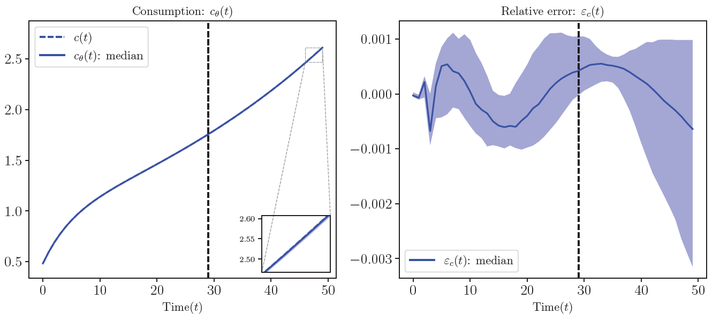Spooky Boundaries at a Distance: Inductive Bias, Dynamic Models, and Behavioral Macro
 Neoclassical growth on balanced growth path
Neoclassical growth on balanced growth pathAbstract
In the long run, we are all dead. Nonetheless, when studying the short-run dynamics of economic models, it is crucial to consider boundary conditions that govern long-run, forward-looking behavior, such as transversality conditions. We demonstrate that machine learning (ML) can automatically satisfy these conditions due to its inherent inductive bias toward finding flat solutions to functional equations. This characteristic enables ML algorithms to solve for transition dynamics, ensuring that long-run boundary conditions are approximately met. ML can even select the correct equilibria in cases of steady-state multiplicity. Additionally, the inductive bias provides a foundation for modeling forward-looking behavioral agents with self-consistent expectations.